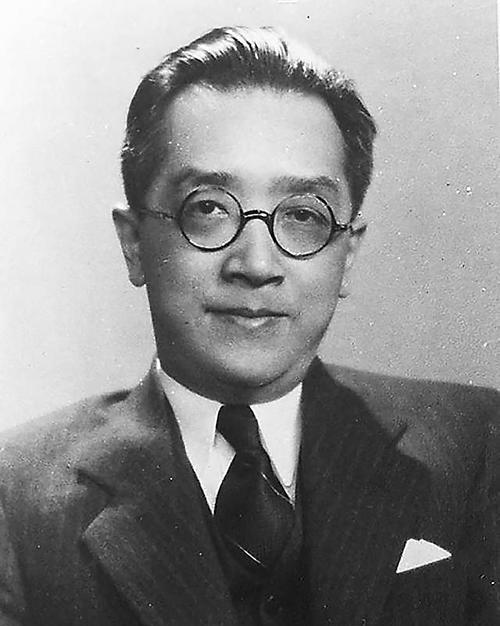
Hu Shi (December 17, 1891 – February 24, 1962), who used the name Si (嗣穈), the character Xijiang, the scientific name Hong Qi (洪骍), was later renamed Shi (適), and the character 適之( Born in Jixi County, Anhui Province, he was born in Chuansha County, Songjiang Province, Jiangsu Province (now Pudong New Area, Shanghai). Modern Chinese thinker, writer and philosopher.
In the second year of Xuanun (1910), he went to Cornell University in the United States to study under the philosopher John Dewey. In the sixth year of the Republic of China (1917), he returned to China and was appointed as a professor at Peking University. In the seventh year of the Republic of China (1918), he joined the editorial board of New Youth. In the eighth year of the Republic of China (1919), he published the treatise Outline of the History of Chinese Philosophy. In February of the ninth year of the Republic of China (1920), the vernacular poetry collection "Attempt Collection" was published. In the eleventh year of the Republic of China (1922), he served as the editor of the magazine "Sinology Quarterly" and founded the magazine "Strive Weekly". In the seventeenth year of the Republic of China (1928), he published the treatise "History of Vernacular Literature". In the twenty-first year of the Republic of China (1932), he was appointed as a member of the National Finance Committee and founded the magazine Independent Review. In the 22nd year of the Republic of China (1933), he was appointed as a member of the Rural Revitalization Committee. In the 27th year of the Republic of China (1938), he was elected as a member of the "National Political Participation Association". From 1938 to 1942, he served as ambassador to the United States. On April 25, 1945, the 34th year of the Republic of China, he attended the San Francisco Conference. From the 35th to the 37th year of the Republic of China (1946-1948), he was the president of Peking University. In 1949, he went to the United States. In 1952, he became a member of the UNESCO Editorial Board of the History of Human Science and Culture in the World; in the same year, he was invited to return to Taiwan to give a lecture. In 1957, he became the president of the "Academia Sinica". He died on February 24, 1962 in Taipei.